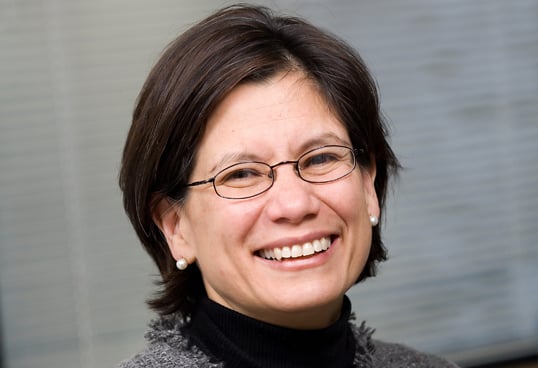 Katherine Luzuriaga, MD, professor of molecular medicine, pediatrics and medicine, has been named vice provost for clinical and translational research, announced Terence R. Flotte, MD, the Celia and Isaac Haidak Professor of Medical Education, executive deputy chancellor, provost and dean of the School of Medicine. Dr. Luzuriaga will report directly to Dr. Flotte and to Chancellor Michael F. Collins in his role as the University of Massachusetts senior vice president for the health sciences.
Katherine Luzuriaga, MD, professor of molecular medicine, pediatrics and medicine, has been named vice provost for clinical and translational research, announced Terence R. Flotte, MD, the Celia and Isaac Haidak Professor of Medical Education, executive deputy chancellor, provost and dean of the School of Medicine. Dr. Luzuriaga will report directly to Dr. Flotte and to Chancellor Michael F. Collins in his role as the University of Massachusetts senior vice president for the health sciences.
“This new leadership position is essential to fulfilling the goals of our NIH-Clinical and Translational Science Award and thus maintaining our national prominence in clinical and translational research. Her stature and translational research track record, particularly her role in the first functional cure of HIV, mean Dr. Luzuriaga is the right person to lead this vital effort,” said Flotte.
As part of her duties, Luzuriaga will continue to serve as the director of the UMass Center for Clinical and Translational Science and as principal investigator of the National Institutes of Health-funded Clinical and Translational Science Award. She will be responsible for the integration, leadership and oversight of programs, facilities and services necessary to advance the full spectrum of clinical and translational research.
Luzuriaga will work collaboratively with University, UMMS and UMass Memorial Health Care leadership to ensure that advancing excellence in clinical and translational research is fully integrated into the UMass Life Sciences Strategic Plan and the Academic Health Sciences Center Strategic Plan.
Luzuriaga joined the UMMS faculty in 1990 and served as chief of the division of pediatric immunology, infectious diseases and rheumatology from 1999 to 2012. Her research, which has been consistently NIH-funded over the past 20 years, focuses on the viral and immunopathogenesis of persistent viral infections in children, including human immunodeficiency virus (HIV) and Epstein-Barr virus. As a physician-scientist, she is passionate about translating research discoveries into practice. Internationally recognized for her research on preventing mother-to-child HIV transmission and for her work on early therapy of HIV-1 infected infants, Luzuriaga is the founding director of the UMMS Office of Global Health. She has also served as associate provost for global health since 2008.
TIME magazine named Luzuriaga to the 2013 TIME 100, the magazine’s annual list of the 100 most influential people in the world, for her role on a team of researchers that reported the first case of a “functional cure” in an HIV-infected infant.
Luzuriaga is a past recipient of Hood Foundation funding, as well as a Research Scholar Award and an Elizabeth Glaser Scientist Award from the Elizabeth Glaser Pediatric AIDS Foundation. A 10-year NIH Mid-Career Award (K24) provided support for her to mentor junior scientists in patient-oriented research and to lead the establishment of the UMCCTS Clinical Research Scholars (K12) Program, a program that provides mentored research support to young investigators transitioning from training to independent careers. Luzuriaga has held several leadership positions within the U.S. National Institutes of Health-sponsored Pediatric AIDS Clinical Trials and IMPAACT Groups. She has served on NIH Study Sections, as a consultant to the World Health Organization, as a member of the Institute of Medicine’s Committee on the Perinatal Transmission of HIV, and as a member of the NIH Office of AIDS Research Etiology and Pathogenesis Planning Committee.
Related links on UMassMedNow:
Discovery prompts new hope for pediatric HIV cure at UMMS
Researchers describe first 'functional HIV cure' in an infant
Early HIV treatment aids long-term viral suppression in teens
UMMS faculty witness history in Liberia
Team of faculty headed to Liberia to work and celebrate
Launching medical education studies in Liberia